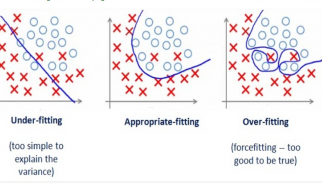As part of Pride Month this year, I joined our newly formed LGBTQ Employee Resource Group to learn more about inclusive language and gender identity. As inclusive language evolves, our empathy, vocabulary and specific word choice should shift in tandem.
At Handshake, we believe students are more than a GPA and major and want to help every student bring their full-self to the career search. Over 70% of students shared with us that they prefer a company that is diverse, inclusive, and makes them feel included regardless of race, geographic location, ethnicity, gender, sexual orientation, disability, socioeconomic status, and appearance. As recruiters prepare for campus visits, each interaction should reflect a student?s or group?s style and preference.
To help, Handshake?s Employee Resource Groups identified language principles that would ensures all students are treated with respect and dignity. The list of terms includes concepts to know, expressions to avoid, and words to incorporate into your vocabulary, job descriptions, and conversations with students.
Assessing phrases and words that usually go unchallenged, and changing personal habits requires patience and empathy. Some of these words are harmless and meant to be educational. Others are hurtful; usually said unintentionally without knowledge of their history or implications.
This guide will provide you with:
- Principles to remember: Every language is built off of rules and frameworks. Inclusive language is structured similarly. These principles help you enter conversations mindfully of an individual?s or audience?s preferences.
- Concepts to know: Student recruitment and campus engagement have changed dramatically. To be effective recruiters and diversity practitioners, we need to stay abreast of new words, concepts, and trends that impact our work. This list comprised of concepts from the education, diversity, and recruitment world ? some of which you may be familiar with and other new.
- Phrases to avoid: The list of phrases contains two types of expressions: gendered or exclusive terms that will decrease the likelihood of attracting a targeted candidate profile; and everyday phrases with racist origins.
In the spirit of inclusion, and to be sure this guide is representative of all students from every culture, race, ethnicity, gender, sexual orientation, age, disability, socioeconomic status, etc., feel free to add phrases or examples we didn?t cover in the comments below.
Every language is built off of rules and frameworks. Inclusive language is structured similarly. These principles help you enter conversations mindful of an individual?s or audience?s preferences.
Put people first: It is essential to put the person first ? to focus on the person, not their characteristics, e.g., instead of ?a blind woman? or ?a woman salesperson,? use ?a woman who is blind? or ?a woman on our sales team.? We are more than our descriptors, so putting people first keeps the individual as the essential element. Only mention characteristics like gender, sexual orientation, religion, racial group or ability when relevant to the discussion.
Use universal phrases: Idioms, industry jargon and acronyms can exclude a student who may not have specialized knowledge of a particular subject and impede effective communication as a result. Many idioms don?t translate well from country to country. For example, saying ?Hit it out of the park? could potentially turn your encouragement into a source of embarrassment if the person fails to grasp the expression or baseball?s cultural impact and significance. Instead say, ?I believe in you!?
Recognize the impact of mental health language: ?Bipolar,? ?PTSD,? ?OCD? and ?ADD? are real mental health diagnoses that people possess. Using these terms to describe everyday behaviors underplays the impact of someone?s experiences with a mental disorder. Also, avoid derogatory terms that stem from the context of mental health, like ?schizo,? ?paranoid,? or ?psycho.?
Use gender neutral language. Using ?guys? to address all people is gendered languages that may insinuate that men are the preferred gender at your organization. Instead, work in inclusive words such as; folks, people, you all, y?all, and teammates.
Growth mindset: Individuals who believe their talents can be developed (through hard work, good strategies, and input from others) have a growth mindset. They tend to achieve more than those with a more fixed mindset (those who believe their talents are innate gifts). When entire companies embrace a growth mindset, their employees report feeling far more empowered and committed.
Ask if you aren?t sure: Inclusive language is nuanced and used to reflect an individual?s or group?s personal style and preference. If you?re not sure, ask your colleagues and students how they talk about themselves.
Phrases to avoid
The list of phrases contains two types of expressions: gendered or exclusive terms that will decrease the likelihood of attracting a targeted candidate profile; and everyday phrases with racist origins.
Bossy: This term has been skewed to be a negative term to describe a woman that is direct and communicates expectations.
Guys: Using ?guys? to address all people is gendered languages that may insinuate that men are the preferred gender at your organization. Instead, use gender-neutral language such as; folks, people, you all, y?all, and teammates.
Girl/Girls: For anyone over 18 years old, woman or women is a better choice.
Grandfathering/grandfather clause: A way to exempt some people from a change because of conditions that existed before the change (e.g. we?ve grandfathered some users on an unlimited data plan.?) The term ?grandfather clause? originated in the American South in the 1890s as a way to defy the 15th Amendment and prevent black Americans from voting. A good alternative might be ?legacy?
Gypped: Racial slur for being defrauded, swindled or cheated. According to the Oxford English Dictionary, the term is ?probably an abbreviation of ?gypsy,? a word commonly used to describe the Romani people.
Ghetto: The creation of ghettos was a key step in the Nazi process of separating, persecuting, and ultimately destroying Europe?s Jews. In America, the term became associated with poor areas with non-white residents. Now, it?s a bigoted term that gets tossed around to mean low-class.
Ghettos
In Budapest, Hungarian authorities required Jews to confine themselves to marked houses (so-called Star of David?
www.ushmm.org
Females: To many English speakers, ?females? sounds like a scientific designation one would use for animals or plants. Try ?women? instead.
6 Reasons You Should Stop Referring To Women As ?Females? Right Now
Simply put, it?s rude and it?s weird.
www.buzzfeed.com
Hacker: In job descriptions, the term ?hacker? can be tough for many to identify with. Alternatives: engineer, developer
Handicap: Some disability advocates believe this term is rooted in a correlation between a disabled individual and a beggar, ?who had to beg with a cap in his or her hand because of the inability to maintain employment.? Better alternative: Disabled
Housekeeping: In reference to office work, this language can feel gendered. Suggested alternative: maintenance, cleanup
Indian/American Indian: This language dates back to Christopher Columbus and naming a people on a Anglo-Saxon perception. It implies that these nations are only defined by how they were perceived by Europeans after 1492, when their people were massacred. Use the term ?Native American.?
Ladies/gals: Terms like ?ladies?, ?gals? or others can feel patronizing to some. Try women instead, or ?folks? or ?people? for mixed-gender groups.
Lame: Originally used in reference to people with reduced mobility, now often a synonym for ?uncool.? Both types of uses are ableist.
Man: As a synonym for work ? as in ?man hours,? ?man the inbox,? ?man the conference booth,? ? this is unnecessarily gendered language. Try using work instead. More inclusive: Folks, people, you all, y?all, teammates
Master/slave: Problematic term sometimes used to refer to one machine that has the original copy of data and others that automatically update themselves to match its data. Replacements include primary/replica, primary/standby.
Mental Disability: The use of this phrase implies that someone that may struggle or have a psychiatric diagnosis is disabled and unable to do their job. This is likely to make them feel stigmatized and unwelcome in the workplace. Many people that struggle with mental health problems are great at their jobs, despite adversity, and supporting them can make them an even greater asset to your workplace.
Meritocracy: Belief in the flawed idea that hard work and talent alone are all that?s needed to achieve success. Challenges like implicit bias, structural inequality and varying degrees of privilege or disadvantage mean meritocracy isn?t currently a reality.
Minority: The word is sometimes used as a blanket term for people from underrepresented groups including African Americans, Hispanics, Asian Americans, Pacific Islanders, Native Americans, and so on. People of color will comprise a majority of the nation?s population in a little more than a generation by 2040. In fact, children from Black, Latinx, Asian and bi-racial births now account for more than half the births in the US. Instead say, students from underrepresented backgrounds or specify a specific ethnic group.
Ninja/rockstar: Words sometimes used in tech job descriptions that can skew towards a gendered interpretation and discourage some groups from applying.
Peanut gallery: This term for heckling or unwanted disturbance originates in the 1920s when the peanut gallery referred to the back section of theaters, which were the only places that people of color were allowed to sit at the time. The phrase was meant to poke fun at the idea of people of color engaging in intellectualism.
Thanks for reading this far – Read Part 2 here!
Thanks to Courtney Seiter, Director of People at Buffer and Co-Founder at Girls to the Moon, and the Handshake team for building an incredible list of inclusive language principles that make us better people and a better society for all.

